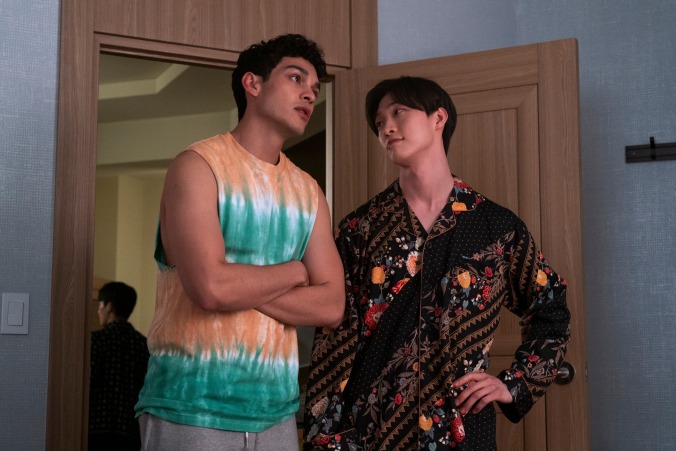XO, Kitty review: The scene stealer from To All The Boys I've Loved Before gets her own show
Anna Cathcart stars in a perky Netflix spin-off that takes a while to find its footing

Any spin-off has inherent risk. Sure, you’re leveraging a familiar world with a built-in audience, but side characters are often to the side for a reason. In the three To All The Boys I’ve Loved Before movies, Anna Cathcart stole scenes as Lara Jean’s precocious little sister, Kitty. Bubbly, wise beyond her years, and occasionally biting, a pinch of Kitty could spice up a scene. But what happens when there’s more than a pinch? Can Kitty sustain an entire show?
XO, Kitty, which premieres May 18 on Netflix, is banking on it, because after a quick opening scene with her dad (John Corbett) and stepmom (Sarayu Blue), Kitty’s family essentially disappears from the show. No cameos or quick video chats from Lara Jean or Peter Kavinsky here! After four years of pen palling with Dae (Minyeong Choi), a boy she met on the family’s trip to South Korea, 16-year-old Kitty is transferring to join him at the prestigious Korean Independent School of Seoul (KISS). It also happens to be where her deceased mother spent her junior year of high school, and Kitty is eager to feel closer to the mom she never really knew.
It’s a strong premise, taking know-it-all Kitty across the world to suddenly be a fish out of water all while trying to sort out her mother’s past. But Kitty’s strictest teacher, Professor Lee (Michael K Lee), shares some criticism that might as well be for the whole show: “Aggressive perkiness may have charmed your American teachers, but here you need to put in more work.”
Kitty is … a lot. Creator and showrunner Jenny Han has a strong success rate for creating charming heroines in Lara Jean (To All The Boys) and Belly (The Summer I Turned Pretty), but those were both adaptations from her novels. XO, Kitty is her first story created expressly for TV, and things feel a little clunky at first. The characters aren’t as lived in, the dialogue is frustratingly expositional, and our protagonist grates on everyone around her, including the audience.
 Keep scrolling for more great stories.
Keep scrolling for more great stories.
